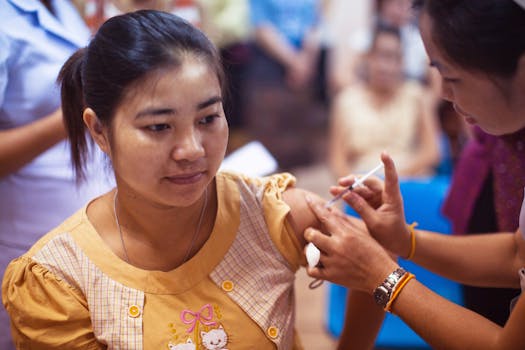
Understanding Vaccines

Vaccines are a cornerstone of public health, serving as a proactive measure against infectious diseases. They work by stimulating the body’s immune response to recognize and combat pathogens, such as bacteria and viruses. Through a process called immunization, individuals are exposed to a harmless form of the disease, training their immune system to respond effectively without actually causing the illness.
The Immune Response

The immune system uses a highly sophisticated approach to identify and eliminate pathogens. When a vaccine is administered, it contains antigens—these could be in the form of weakened or killed viruses, subunits of the pathogen, or genetic material that prompts cells to produce a protective response. This exposure spurs the creation of antibodies, which are critical for future defense against the actual disease. If the individual is later faced with the disease, their immune system can recognize and neutralize it more effectively.
Herd Immunity and Public Health

One of the most significant public health benefits of widespread vaccination is the concept of herd immunity. When a substantial portion of a population is vaccinated, contagious diseases have fewer opportunities to spread. This not only protects those who cannot be vaccinated—like young children or individuals with specific health issues—but also decreases the overall prevalence of the disease in the community. Herd immunity is imperative for maintaining public health standards and preventing outbreaks.
The Role of Vaccination in Preventing Outbreaks

Vaccines have dramatically reduced prevalence rates of several infectious diseases over the decades. For instance, the widespread use of the measles, mumps, and rubella (MMR) vaccine has led to a significant decline in these illnesses, once considered commonplace. Successful vaccination campaigns have the potential to eradicate diseases, evidenced by the global effort to eliminate poliovirus. Following extensive vaccination strategies, some diseases can be confined to small areas or completely wiped out, vastly improving quality of life and health security.
Continued Importance of Vaccines

As science progresses, the importance of vaccines does not diminish. Ongoing research strives to develop more effective vaccines, even for complex diseases like HIV and cancer. Public health authorities emphasize that staying updated with vaccinations not only helps protect individual health but also contributes actively to global health efforts. In light of global pandemics, the role of vaccines in controlling disease spread has become more critical than ever.
Conclusion

Vaccines represent one of modern medicine’s most remarkable achievements. Understanding the science behind them elucidates their role and effectiveness in public health. Through proactive immunization and community effort, societies can protect their members from preventable diseases, ultimately ensuring stronger and healthier populations. Advocacy for vaccination holds powerful implications for health promotion worldwide, reinforcing the integral role vaccines play in urban and rural public health realms.





